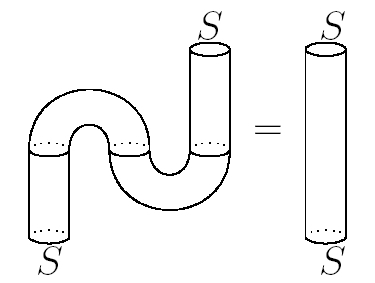

Category theory is a general language for describing things and processes - called "objects" and "morphisms". In this language, the counterintuitive features of quantum theory turn out to be properties that the category of Hilbert spaces shares with the category of cobordisms - in which objects are choices of "space", and morphisms are choices of "spacetime". In particular, both these categories - but not the category of sets and functions - are noncartesian monoidal categories with duals. We show how this accounts for many of the famously puzzling features of quantum theory: the failure of local realism, the impossibility of duplicating quantum information, and so on. We argue that these features only seem puzzling when we try to treat the category of Hilbert spaces as analogous to the category of sets rather than the category of cobordisms, so that quantum theory will make more sense when regarded as part of a theory of spacetime. Moreover, the common features of the category of Hilbert spaces and the category of cobordisms are best understood by studying categories of "spans" and "cospans".
Click here to see the slides of the talk:
For more on this subject try these introductory papers:
Also try this somewhat more technical one: